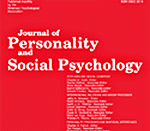The recent article explores & develops a theory on why do variations in work group sex composition affect men & women differently. Previously one of the main options for understanding the asymmetric reactions to work group sex diversities was the similarity attraction theory that suggests that men & women are attracted & prefer to spend time with others who hold attitudes that are similar to their own (Condon & carno , 1988) ,however following similarity attraction theory can only fit the older studies because these studies have been made on samples in the organizations with relatively few women & relatively few variations in work group sex composition , therefore it was very difficult to know whether women's reactions matched men's reactions or not .
The main aim of the researchers was to provide a clear picture of men & women reactions to differently composed groups by augmenting the similarity attraction predictions with consideration of social status.
(p.194)
In their deductive theory the authors thus outlined four different hypotheses to explain the asymmetric reactions to work group sex diversity between men & women depending on two main theories, the status expectation theory & the similarity attraction theory,
Their first hypotheses was that" men & women will prefer membership in higher status work groups ; women in female dominated groups will be more likely than men in male dominated work groups to express intensions to transfer to anther group in the same job within their organization" (p:195) based on the status expectation theory women work & also her role as a manager has been always perceived of lower status than men even if they were carrying similar jobs ( Dimitrovsky, singer & Yinon ,1989) further more it was found that men attached greater importance to promotion than did women (cassires & reskin,2000)...


